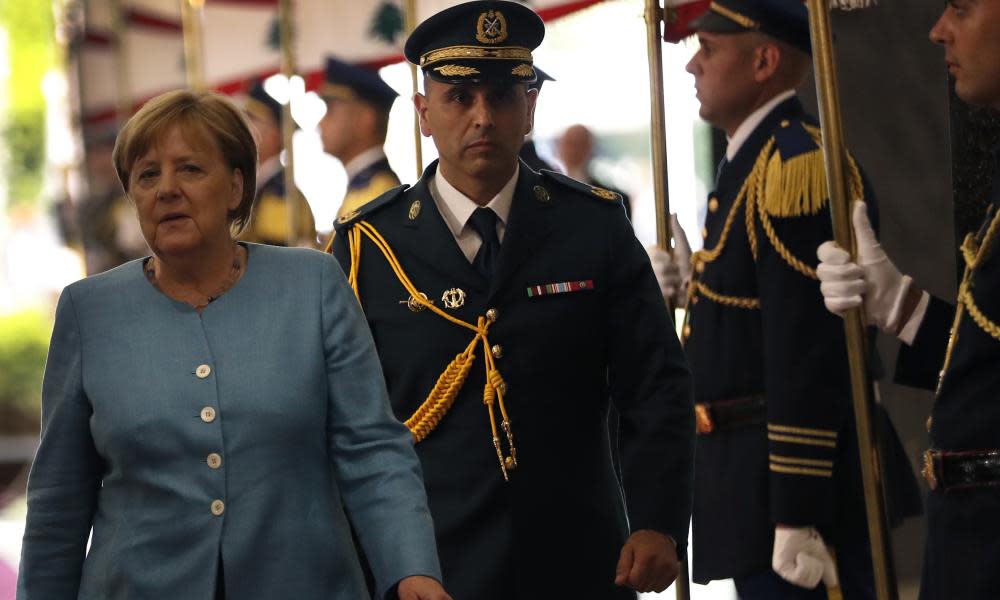EU leaders' migration summit offers lifeline to embattled Merkel

EU leaders gather for an emergency summit on migration on Sunday, with the aim of shoring up Angela Merkel’s government.
The informal “mini-summit”in Brussels is seen as a lifeline for the German chancellor, whose CDU party is involved in a bitter dispute over refugee policy with its conservative sister party in Bavaria, the CSU.
Following a row with Italy about the purpose of the meeting, Merkel is downplaying expectations. “The meeting on Sunday is a consultation and working meeting at which there will be no concluding statement,” she said.
Italy’s prime minister, Giuseppe Conte, agreed to go to Brussels only after Merkel abandoned a set of pre-written conclusions. A pre-cooked summit communique that emerged last week angered Conte, who said it neglected the “emergency” of migrant arrivals in Italy.
Migration has become a political football in Germany and Italy, despite a sharp drop in the number of arrivals. About 41,000 refugees and migrants crossed the Mediterranean in the first six months of 2018, and 960 people are confirmed or suspected to have died, according to the latest data from the International Organisation for Migration. The arrival figures are 51% down on last year and 81% down on 2016.
The issue has shaken Merkel’s government after the hardline interior minister, Horst Seehofer, who is also the CSU leader, set a two-week deadline for her to come up with a policy to deal with asylum claimants arriving in Germany from other EU member states.
Udo Bullmann, a German Social Democrat MEP, accused the CSU of provoking a crisis to bolster its chances in the state election this autumn. “The Bavarian CSU is doing what they always do when the face a crisis, they are organising a crisis with their sister party,” said Bullmann, the leader of the Socialist group in the European parliament.
“They are frightened of losing their absolute majority. They see they are declining in numbers, so they think ‘where is my conflict with Berlin, where is my conflict with Brussels’. But in the real world, games can get out of control.”
The summit guest list started with eight countries, but the leadersof 17 member states were expected to attend. Hungary’s prime minister, Viktor Orbán, announced his country and three other central European states would boycott the meeting, although none was expected or obliged to attend.
Marta Foresti, the director of the Overseas Development Institute, said the EU was “in disarray on migration and the probability of reaching EU-wide consensus is at an all-time low”.
“With the number of arrivals significantly decreased, but a higher proportion of those migrants dying during their journeys, taking concrete steps to address the reality of migration from Africa to Europe could not be more manageable and at the same time more urgent,” she said.

 Yahoo News
Yahoo News 
